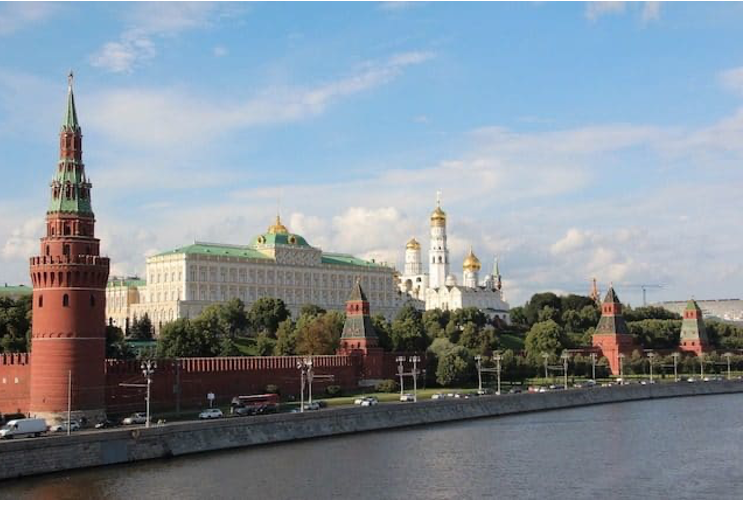CommentsCOMMENTARY - War has begun in Ukraine and where it heads next is uncertain.
Leading up to the Russian recognition of the break away regions of Ukraine one heard repeated assertions by US President Joe Biden and his Secretary of State Antony Blinken that diplomacy was still possible. Such an assertion was premised upon a false set of beliefs or assumptions that the US has about Europe and the world which it assumes Russia accepts but does not.
What does the US believe and in turn, not understand about the world? The answer is a lot. Nearly 50 years ago David Halberstram’s Best and the Brightest and Frances Fitzgerald’s Fire in the Lake described the myopic view of US foreign policy. It was a vision that was built on a set of assumptions about the world that began in 1945.
Since 1945 the US has been the leader of the democratic free world. But it has also been the leader in supporting a set of international laws and norms that define its world view. This is a view that is committed to the United Nations and a framework of international law that accepts several principles. One, dating back to the Kellogg-Briand Pact of 1928, use of force to resolve international disputes is illegal. Two, that sovereign state borders are to be respected. Three, international institutions such as the United Nations and the World Court are the instruments to resolve disputes of any kind. Finally, states are supposed to be honest and genuine, recognizing the above principles and committed to good faith efforts to conduct themselves as members of the international community.
These are the principles that the US in theory is committed to and believes every other state shares. It is a view that rejects realism, self interest, and power politics as the definition of what motivates state behavior. It is the world view the US helped create. It defended it throughout the Cold War with the Soviet Union, the latter of which fundamentally did not honor these principles, as Hungary in 1956, Czechoslovakia in 1968, and Afghanistan in 1980 revealed. The USSR at best had to honor these principles, not because they believed in them, but because power politics and the bipolarism of the Cold War led them into that. It was also a viewpoint historically supported by Russian imperialism and the quest for its zone of influence.
When the Soviet Union broke up in 1991 the US thought it had won the Cold War and the USSR lost. It believed that the only credible world view was its, and that eventually the expansionist tendencies of Russia ended with communism. What America lulled itself into believing was that the end of the Cold War meant that eventually Russia would join Europe and become a stable liberal democracy.
The mistake of the US was in believing the fiction that its worldview won and that it could convert other nations to democracy. Yet the failures of Afghanistan and Iraq should have told American leaders this was a foolish assumption. Additionally, another naive assumption was that a non-communist Russia would accept the new world order and settle into a normal behavior that acquiesced to America and Europe’s interests. In fact, the US was so convinced of these beliefs that When Barack Obama was president his self-described “pivot to Asia” suggested that Russia was no longer a threat to Europe and that it was merely a “regional power.”
Yet none of this was true. The unipolar moment that the US had after 1991 was not one that Russia accepted. Putin long ago hinted at this when he said that the breakup of the Soviet Union was the greatest geo-political disaster of the twentieth century. The US confused Soviet ideology with Russian history and power interests, thinking the latter no longer mattered. The result? The US ignored NATO, or at least took it for granted, and it also under-appreciated Russia and its interests. It also seemed to think that the 1994 agreement between Russia and Ukraine, where the latter would give up nuclear weapons in return for Russian recognition of its sovereignty, meant something and that Russia would honor that agreement. Because of this, Ukraine did not need NATO membership to protect itself, Russia would not invade or challenge its sovereignty.
The point here is that what the US failed to understand is that the way it understands the world is not the way Russia sees or understands it. It does not accept the basic Cold War and Post Cold War viewpoint the US wants to defend. America’s failure to understand that point puts us where we are today. America thought diplomacy could avert this crisis or that economic sanctions after Ukraine is divided up or invaded will punish or deter Russia. To believe all this is to misunderstand Russia and the world and such a misunderstanding, in part, is why Europe is on the brink of war again with the US not prepared regarding what to do next.
(David Schultz is a professor of political science at Hamline University. He is the author of Presidential Swing States: Why Only Ten Matter. This story was featured in CounterPunch.org.)





